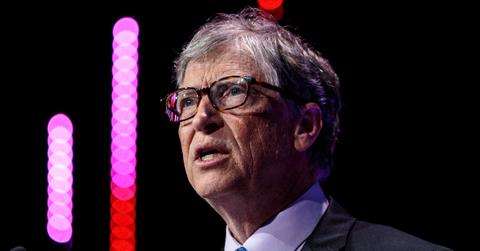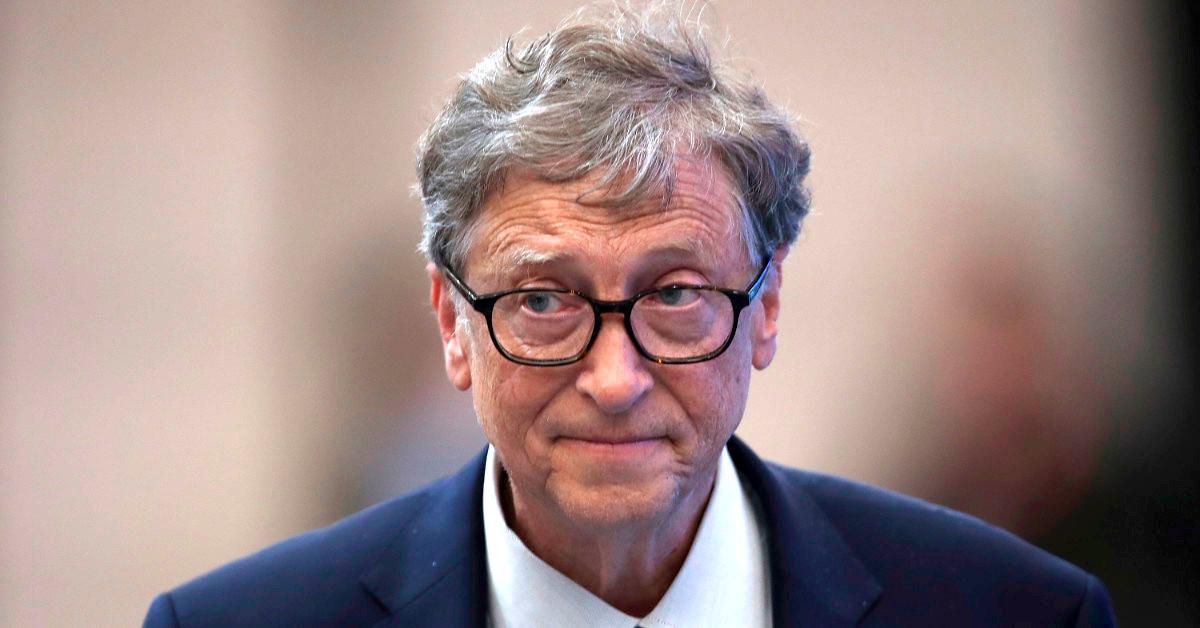Bill Gates Joined “Central Cast of Conspiracy Villains” in the COVID-19 Era
Why do people hate Bill Gates? The Microsoft co-founder joined “central cast of conspiracy villains,” during the pandemic, said one researcher.
Oct. 25 2021, Published 1:37 p.m. ET

He’s a computing legend who became a major philanthropist… so why do people hate Bill Gates now? Well, for starters, the Microsoft co-founder’s public image has taken a beating recently. In Oct. 2019, The New York Times reported that Gates met multiple times with convicted sex offender Jeffrey Epstein. Gates’s spokesperson told the newspaper that the two men met to discuss philanthropy and that Gates “regrets ever meeting with Epstein.”
Then, in May 2021, The New York Times reported that Gates once had an affair with an employee and that he would “on occasion pursue women in the office,” even after marrying Melinda French Gates. And in June 2021, The New Republic branded Gates a “tech supervillain” who “insisted on preserving intellectual property claims that inhibited a more equitable distribution of vaccines and privileged Big Pharma over global health.”
But there are also conspiracy theories around Gates, with some blaming him for the pandemic.
Conspiracy theories about Gates run rampant on social media

In the age of COVID-19, social media users have claimed that Gates and Anthony Fauci, the chief medical advisor to the president, created the pandemic in an attempt to control people, profit from the virus, and insert microchips into people, as Reuters recapped in Jan. 2021. “Nobody would have predicted that I and Dr. Fauci would be so prominent in these really evil theories,” Gates told the news service at the time. “I’m very surprised by that. I hope it goes away.”
Gates also expressed skepticism about the conspiracy theorists’ devotion to their claims. “Do people really believe that stuff?” he asked. “We’re really going to have to get educated about this over the next year and understand … how does it change peoples’ behavior and how should we have minimized this?”
As Market Realist previously reported, some people have cited Gates’s 2010 TED Talk about carbon emissions and climate change as proof that he is, in the words of one person, a “fanboy of eugenics a.k.a. depopulation.” In that TED Talk, however, Gates proposed vaccines as a way to slow population growth and thus reduce carbon dioxide emissions, not as a means to kill people, as fact-checkers pointed out.
And in Feb. 2021, as a snowstorm in Texas cut off electricity to millions of homes, a Telegram user claimed that the crisis was a “planned attack” and that Gates is “attempting to block the sun in order to keep the Earth more cool,” according to Insider. That theory referenced a Sun-dimming study Gates supported, but other social media users claimed Gates had already dimmed the Sun.
Why are there so many conspiracies about Bill Gates?
Elise Thomas, a disinformation researcher and analyst at the Institute for Strategic Dialogue, told Insider in Feb. 2021 that the pandemic “ramped [up]” conspiracy theories against Gates and put him in the “central cast of conspiracy villains alongside people like George Soros, or Barack Obama, or Hillary Clinton."
And Karen Douglas, a professor of social psychology at the University of Kent and a researcher of conspiracy theories, told the site, “The people who are blamed are often 'scapegoats' who represent powerful groups or organizations. Conspiracy theories that involve scapegoats such as Bill Gates are successful because there is a clear and identifiable person to blame. People then think they have the answer and the solution is then to curb the power of this individual and their group.”
